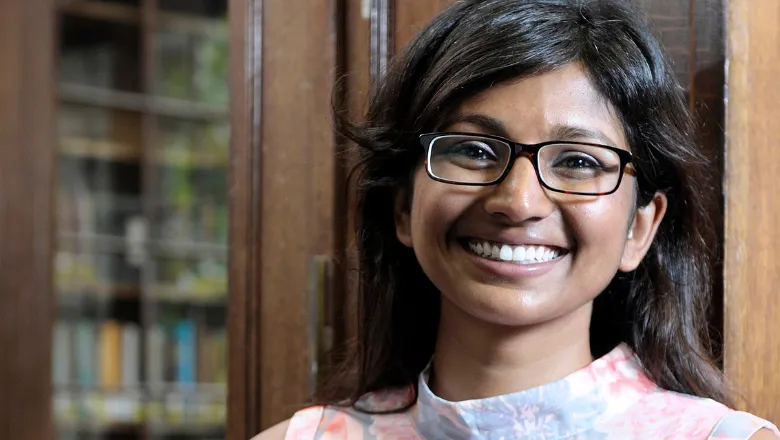The field of perinatal brain research has quite an equal share of female and male Principal Investigators (PIs) globally. This is inspiring in itself. My advice for anyone interested in studying brain development from a basic science or clinical interest is to follow what you are most passionate about. Also, keep your eyes and ears open for opportunities both locally and internationally.
Dr Ana Baburamani
08 March 2019
Women at King's 2019: Interview with Dr Ana Baburamani
Dr Ana Baburamani, Research Associate at the Department of Perinatal Imaging and Health on her journey and advice for other women in the medical imaging field.

8 March is International Women's Day, a global day to celebrate and acknowledge the social, cultural, economic and political contributions of women. The 2019 theme is 'Balance for Better', and calls for a reflection on the progress made and the journey ahead to achieve gender equality across the board.
We spoke to Dr Ana Baburamani, Research Associate at the Department of Perinatal Imaging and Health, and Champion of Faculty of Life Sciences & Medicine Research Staff Network to learn more about her journey and advice for other women in the medical imaging field. Ana completed her PhD at Monash University, Australia and undertook her first post-doctoral position at University of Gothenburg, Sweden. In 2014 she moved to the Centre of the Developing Brain at King’s. During this time, she has also helped establish early career researcher staff networks in the School and Faculty.
What are you proudest of in your career?
Having the opportunity to represent the voice of research staff, and promote STEM careers in the community.
I am a Faculty of Life Sciences & Medicine Research Staff Representative, which provides a platform to discuss current challenges and put important issues on the Faculty’s executive agenda. During this time, we were able to tailor the Performance Development Review (PDR) specific for Research Staff, which has now been implemented throughout the University.
Last year, I also hosted two In2ScienceUK students, for a two-week summer placement. In2ScienceUK provides STEM based placements to students from disadvantaged backgrounds. In addition to the students having a great time experiencing both lab and clinical research, they entered the Faces of Science Photo competition - and won!
Why did you decide to go into this field of research? What would you tell women who want to study in your field?
I’ve always had a keen interest in neuroscience, and during my undergraduate degree was introduced to the field of fetal physiology. I found it fascinating learning about development and how alterations during pregnancy can heavily impact the fetal and neonatal brain. I had an honours and PhD project that incorporated both topics and thoroughly enjoyed it.
Who or what made you want to work in this field? How has your field changed since you started, and where do you see it going in the future?
I’ve always been surrounded by enthusiastic and supportive scientists and Principle Investigators who continue to be excited by the science. My research interests are motivated by wanting to know what underlies clinical conditions and to be able to better translate findings from the bench to clinic. To achieve this, a multi-disciplinary approach where both basic scientists and clinicians can interact has been key. Being able to work on a range of pre-clinical projects from in vitro, small and large animal models of perinatal brain injury and integrating with clinical studies continues to be incredibly motivating. Two years ago I started working on understanding brain development in Down Syndrome.
In recent years there have been significant advances in both technologies and techniques, with there now being a greater focus on sequencing, genetics and computational modelling in neuroscience. Both the fields of perinatal brain research and brain development Down Syndrome are still striving to find new therapeutic targets to improve outcomes in babies.
